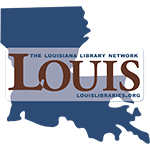This discussion aligns with the following Module 1: Chapter 1: Nature of Science objectives:
- List and Use the steps of the Scientific Method(CLO2)(CLO4)
- Estimate Physical Parameters (CLO2)(CLO3(CLO5)
- Recognize and use SI Base Units and Prefixes (CLO2)(CLO5)
Be sure to comment on at least two of your classmates' postings. Your response should be at least 5 sentences long. This includes responses to classmates' posts. Your replies must be more than a simple phrase like "I agree" or "I like your answers". Replies should reflect why you agree or like what has been posted. Your replies must reflect a genuine effort to engage your fellow classmates regarding the comments provided or the problem that has been solved. Please think about the questions and your peers' responses and reply thoughtfully and courteously, according to netiquette rules. Use good English grammar, correct punctuation, and complete sentences. While the posts will mostly be judged by their thoughtfulness and completeness, I reserve the right to take off points for grammatical errors, especially if they interfere with the clarity of your post.
Your initial posting is due on Monday by 11:59 pm CST. Your responses to 2 of your classmates are due on Saturday by 11:59 pm CST.Please post your answers and replies to the discussion questions below
- What have you measured lately? Why did you make the measurements that you did? What tools did you use? What units did you use? What were the amounts of your measurements?
- Discuss some careers in which being able to measure or estimate is essential. What kinds of properties might be estimated in the careers that you picked?
- Estimate the mass of a flea. How did you come up with your answer? Does your answer seem reasonable? Why
- How does a model differ from a theory? What conditions must be met for information to be classified as a principle, theory or law?
- Why are models useful in science?
- Give an example of a testable and non-testable idea.
- Should scientist make moral judgments as it pertains to their scientific work?
- Describe each step of the scientific method in your own words.
- Why is it important to have community in science?
- You can always add two numbers that have the same units. However, you cannot always add two numbers that have the same property. Explain why not, and include an example in your explanation.
- Considering the fact that 3.28 ft = 1 meter, which is the larger unit? Explain your answer.
